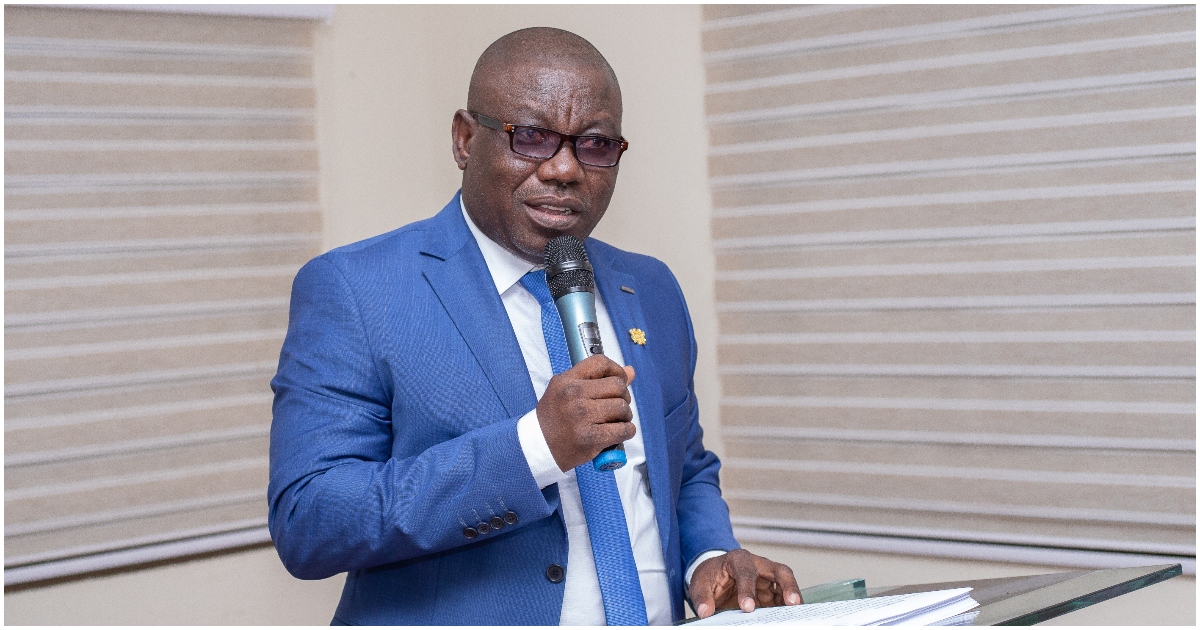Economic Hardship: Adongo Fears Ghana Is Sinking As 91% Of Ghana’s Revenue Is Used To Service Debts
- Ghana's economic hardship remains topical among thought leaders, governance experts and economists
- MP for Bolgatanga Central, Isaac Adongo, has said Ghana is sinking in serious debts due to excessive borrowing
- He said the country is only able to use 9% of its taxes to finance the annual budget, the bigger part of 91% goes into servicing debts
New feature: Check out news exactly for YOU ➡️ find “Recommended for you” block and enjoy!
A ranking member on Parliament’s Finance Committee, Isaac Adongo, fears Ghana is sinking into debt as a huge chunk of the country’s tax revenue is used to service debts.
The finance expert said credible documents made available to Parliament show only 9% of Ghana’s tax revenue is used to finance annual budgets. In comparison, the greater part of 91% is used to service debts.
“This means that to adequately meet the full costs of non-discretionary expenditure, the government had to elevate the public sector debt by borrowing to pay for part of debt service, compensation of employees and statutory payments. Goods and services and capital expenditure have to be financed essentially by borrowing,” he said.

Source: Facebook
Mr Adongo, opposition MP for Bolgatanga Central, made the comments at the 11th Leadership Dialogue Series (LDS) organised by the Centre for Social Justice on Tuesday, September 6, 2022.
PAY ATTENTION: Click “See First” under the “Following” tab to see YEN.com.gh News on your News Feed!
Speaking on the theme: “Transforming Ghana’s Economy – Scapegoats, Root Causes & Hard Choices”, the MP noted that the promise by the Nana Akufo-Addo administration to shift the focus of economic management from taxation to production failed because the thinking behind it was flawed.
He said that idea ignored the complexities of challenges confronting Ghana’s formal and non-formal private sector that needed to be addressed to unleash the desired growth.
“The whole rhetoric on the shift from taxation to production was mere propaganda,” he said.
He added:
“After 2017, Ghana’s fiscal deficit, as reported by the IMF, was on the rise, reaching 7.3% of GDP by 2019, indicating that our public finances were worsening.

Read also
Economic crisis: 'Bear with us in these difficult times; your August salaries will delay' – PBC tells staff
“Government ignored these signals and consistently reported cosmetic fiscal deficits which was not a true reflection of the state of public financing in Ghana. Ghana’s public finance management stated deteriorating even before covid-19."
He made this point to dismiss the government’s repeated excuse that the Covid-19 pandemic, the Russia-Ukraine war and the banking sector clean-up are to blame for Ghana’s economic challenges.
Economic Hardship: Professor Gatsi Wades In With Four Ways Ghana Can Prevent Cyclical Economic Hardship
Ghanaian Accounting and Finance Professor, John Gatsi, has proposed four ways Ghana can prevent the cyclical economic crunch such as is being experienced under the current Nana Akufo-Addo administration.
YEN.com.gh reported that Prof Gatsi said while the current economic troubles, characterised by high inflation and a tumbling cedi, among others, are the outcome of some bad calls under the current administration, the state can avoid a recurrence.
He also spoke at the 11th Leadership Dialogue Series on Ghana's Economy by the Centre for Social Justice (CSJ) on Tuesday, September 6, 2022.
New feature: Check out news exactly for YOU ➡️ find "Recommended for you" block and enjoy!
Source: YEN.com.gh

